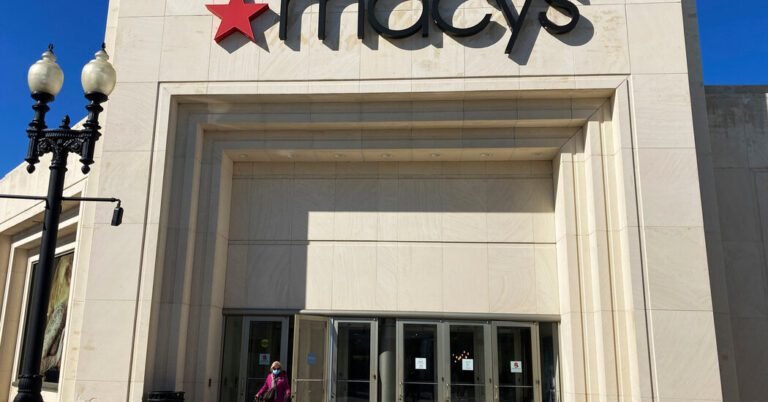The activist investor group seeking to buy Macy’s stepped up pressure on the department store chain on Sunday, raising its offer and revealing additional details about its financing plans.
Arkhouse Management and Brigade Capital Management said in a press release that they are now offering $24 per share, valuing the retailer at $6.6 billion. The new offer is higher than the $21 per share they had last submitted and a 33.3% premium to Macy’s closing stock price of $18.01 on Friday.
Arkhouse and Brigade named additional investors they had brought in as equity partners, Fortress Investment Group and One Investment Management. Arkhouse and Brigade also said, in an apparent response to Macy’s questions about their financing, that they had “identified major global institutional sources of financing” that “represent 100% of the capital required to purchase the Macy’s shares that are not we already own.”
The retailer has faced pressure from the investor group since December, when the group made a $5.8 billion offer to take Macy’s private. Arkhouse said that if the retailer does not start sharing non-public information, it may take its offer to shareholders. Since then, the investor has nominated nine people to Macy’s board.
Macy’s on Sunday said it would “carefully review and evaluate” the latest proposal.
“The board of directors of Macy’s Inc. has a proven track record of evaluating a wide range of options to create shareholder value, is open-minded about the best path to achieve that goal, and is committed to continuing to take actions it believes are best. interests of the company and all shareholders of Macy’s Inc.,” the company said in a statement.
The retailer tried to stay focused on its own turnaround strategy.
Last week, Macy’s announced a strategy that would dramatically change the company’s makeup. It said it would close 150 of its namesake stores within three years, while also opening more locations of Bloomingdale’s and Bluemercury, its luxury chains.
“I hope we close the company before these store closings start,” Gavriel Kahane, managing partner of Arkhouse, said in an interview.
Matt Perkal, partner and head of special situations at Brigade, said “the proposal presents the best path forward for Macy’s shareholders, allowing them to take advantage of the company’s significant unrealized value.”
As a department store, Macy’s has struggled to win over customers who are increasingly shopping in an e-commerce world as it closes brick-and-mortar malls. Macy’s has seen sales decline in recent quarters.
Its new CEO, Tony Spring, who spent his four-decade career at Bloomingdale’s, has acknowledged that the shopping experience at Macy’s is not a pleasant one. Shoppers often encounter cluttered stores with poor-looking clothing and difficulty finding staff. The retailer said it planned to have 350 remaining locations by the end of 2026 and that the capital it earned from closing would flow into the remaining stores.
Mr Kahane said if the company went private, investors would focus on turning around the department store business, a feat he argued would be easier if the retailer were a private company. He also pushed back on analyst speculation that he only wanted the retailer for its real estate.
“So we are clearly here for the right to real estate,” Mr. Kahane said. “We’re here because we think they have a lot of real estate on the balance sheet and that real estate is valuable because it has a great tenant..”
He played down speculation from some retail analysts that investors were just hoping another buyer would jump in front of them.
“I’ll feel a lot worse if someone comes in and hits us here,” Mr. Kahane said. “I would also be much more surprised.”

